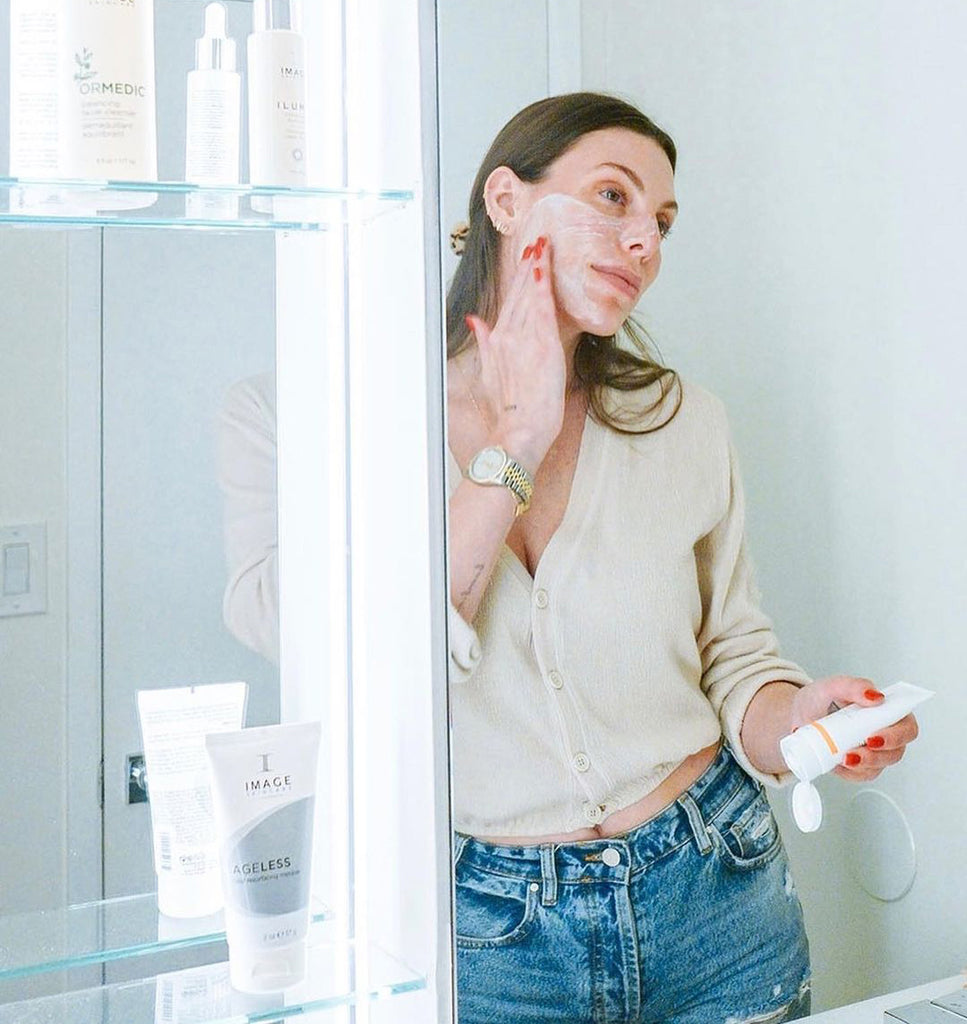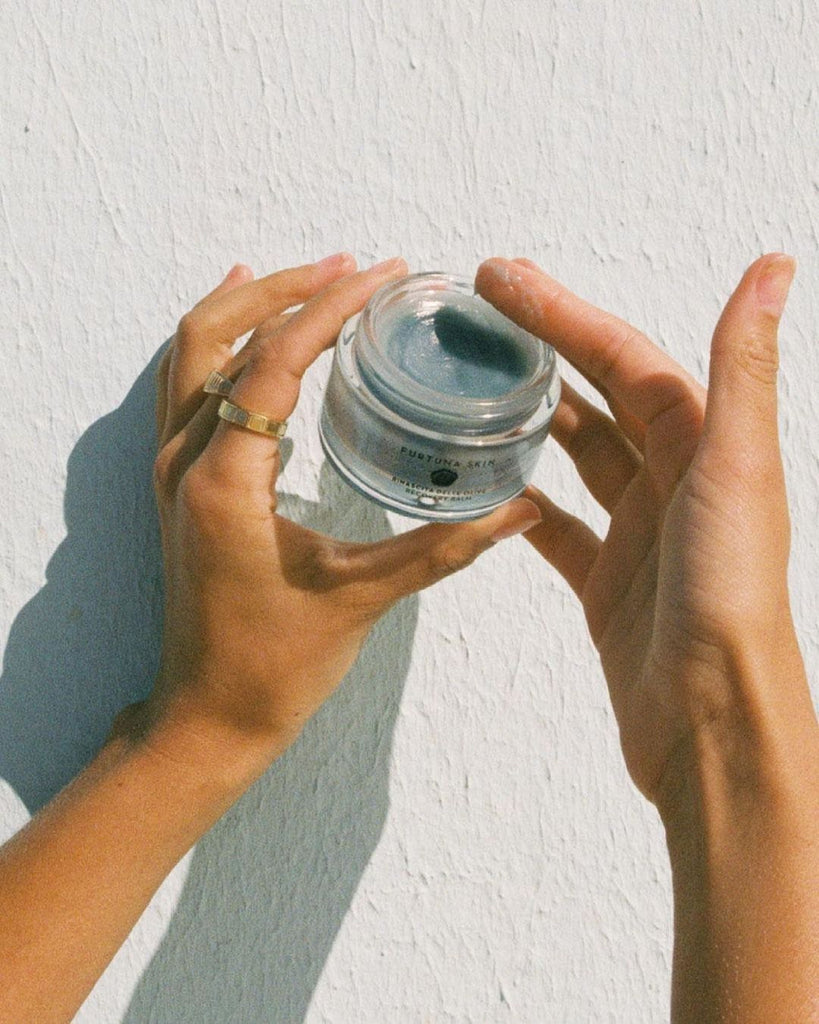N95 masks are a necessary means of protection in the fight against the coronavirus (COVID-19). But the masks' tight fit, combined with long hours at the hospital, have left many healthcare workers dealing with painful bruises and skin irritation.
Case in point: Patricia Lafontant, M.S.N., a nurse in Washington, D.C., recently shared a photo of herself just six hours into her hospital shift, showing the damage already done to her skin.
"My shift started at 7 p.m., it's now 1 a.m. and my face already looks like this," Lafontant wrote on Instagram. "I need all the skin-care specialists to help me out. Everything usually goes away with ice but I'm afraid after a while it won't be that easy... help me out y'all."
She's far from the only one struggling to find a solution. Across the world, people have been sharing similar experiences.
Hats off to all the doctor and nurses after wearing mask and Goggles for longer time the skin started burning salute to all health care workers #COVID #doctors #CronaVirus pic.twitter.com/Qd1agIUgee
— Ask Digital Jinni (@DigitalJinni) March 31, 2020
One person tweeted: "A nurse friend is worrying about the skin on her nose breaking down following long shifts in FFP3 mask [another medical-grade respirator, specifically required for healthcare workers in Europe]. Is there anything she can use while on shift which doesn't compromise the seal?" (BTW, here's what you need to know about making and wearing DIY masks to protect against the coronavirus.)
A nurse friend is worrying about the skin on her nose breaking down following long shifts in FFP3 mask. Is there anything she can use while on shift which doesnt compromise the seal? Sil-tape was my thought from NIV days? Or am I miles off? @Ushert @NeweyVicky
— Martin Sterry (@MJSterry) April 1, 2020
Another person, a pediatric nurse, tweeted that the tightness of her mask was causing her to break out around her mouth: “My skin was finally starting to clear up and look okay, and now i’m constantly sweating in a medical mask and it has caused painful acne around my mouth. I need help.”
@skincarebyhyram Your nurse followers could really use a video on how to care for our skin these days. My skin was finally starting to clear up and look okay, and now I’m constantly sweating in a medical mask and it has caused painful acne around my mouth. I need help. 😭
— Shelbi (@shelbinorwood) March 31, 2020
WHAT IS HAPPENING TO HEALTHCARE WORKERS' SKIN?
You know when you leave a tight hair tie on your wrist or a bra strap digs into your shoulders, you can sometimes see an imprint left behind on your skin? That's basically what happens when you wear a tight-fitting medical mask like an N95 or FFP3, says facialist and medical aesthetician Candace Marino. Except, of course, the extremely tight fit of these masks—plus the hours-long shifts they're used for—can make the irritation a whole lot worse than a nagging bra strap. "Any time something puts constant pressure on the skin, you are going to see some sort of breakdown," explains Marino.
The skin can tolerate a lot, but the impact of high moisture and friction can simply be a recipe for disaster, notes board-certified dermatologist Erum Ilyas, M.D. "When you take friction, add humidity and time, and throw in a little sweat from wearing so much protective gear, you get the perfect storm for irritation leading to breakdown with the potential for bruising and discoloration," she explains. (Related: How to Even Out Your Skin Tone with Laser Treatments and Peels)
The good news: It's not likely to cause long-term damage, says Dr. Ilyas. "While these photos are heartbreaking to see, the first thing to remember is that this is not permanent scarring," she explains. "The inflammation and discoloration are in the superficial layers [read: surface] of the skin and can be easily corrected."
HOW HEALTHCARE WORKERS CAN PROTECT THEIR SKIN
Many people are crowdsourcing ideas for treatments on social media. Lafontant wrote that she's been icing her face after her hospital shifts. On her post, a fellow nurse commented: "I've been using zinc cream during [my] shift as a barrier and then Aquaphor or Vaseline after the shift is over."
Marino is a fan of Lafontant's ice rec: "Using an ice mask at night to calm inflammation, along with blister products like blister balms or hydro-seal blister Band-Aids, might help. Cold rolling skin or icing will also help with inflammation," she says.
Marino also suggests this iS Clinical Pure Care Collection Kit, a reparative skin-care set touted for post-skin procedure recovery. "[This] would work well for anyone experiencing skin breakdown," she explains. The kit comes with a gentle cleanser, two calming, antioxidant serums that help with dry, dehydrated, irritated skin, a hydrating SHEALD recovery balm, and a zinc-based sunscreen, she says. (Wait, do you still need sunscreen if you're spending the day inside?)
Keep a jar of Vaseline or Aquaphor in your fridge to smother over your face once you return from a shift, adds Dr. Ilyas, "Healing products like Desitin can also help," she adds.
For those experiencing breakouts as a result of tight-fitting medical masks, Dr. Ilyas recommends using products that have azelaic acid, a naturally-occurring acid derived from barley, wheat and rye that's best known for helping with fading dark marks. (Psst, here are the best products with azelaic acid.)
Niacinamides—like Paula's Choice Clinical Niacinamide 20% Treatment—can also act as anti-inflammatories and soothe breakouts, adds Dr. Ilyas. If breakouts persist after trying these different treatments, it's best to touch base with your doc about whether antibiotics may be needed, she says.
As for what to avoid putting on post-mask skin: any products that peel or exfoliate the skin, as these "will make the effects of wearing a mask much worse," says Dr. Ilyas.
What's most important, though, is ensuring the mask has a tight fit, agree Marino and Dr. Ilyas. That means only using these treatments when you're not wearing a mask. "Please remember that [putting] anything between your skin and the mask can impact the effectiveness of the mask," notes Dr. Ilyas. In other words, as uncomfortable as the skin irritation might be in the moment, you're better off focusing on post-mask skin-care than putting your safety in jeopardy by compromising the mask's effectiveness while you're wearing it.
"For now, we have to get through the crisis and can only focus on reducing the impact on your skin," says Dr. Ilyas. "After we have this pandemic behind us, anything leftover can be treated."
This article was originally published on shape.com.



